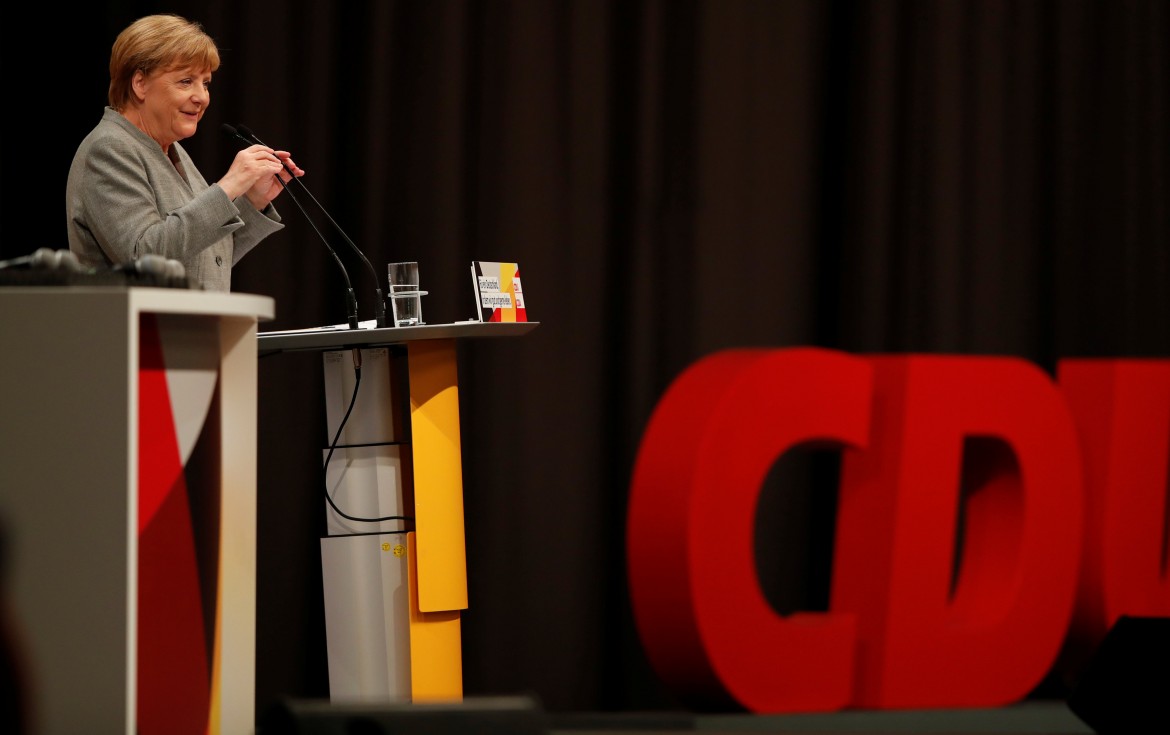Commentary
Dear Germany: Welcome to the South
These events show how the mere presence of Alternative for Germany is affecting the operation of the entire system.

Germany has stopped being bored. But it does not seem to be too happy about it. All of a sudden, we have a situation unheard of in the history of the Bundesrepublik, which is now left without any possible parliamentary majority. After several weeks of negotiations, no coalition can be set up to form a new government.
Two alternatives loom on the horizon: a minority government or early elections.
The first could only function as a disguised form of a Grand Coalition, but the clear support by Martin Schulz for the second option seems to rule out this possibility.
Early elections, in any case, would be an anomaly and uncharted territory, but one which the secretary of the Social Democrats would choose to face rather than settle for the poor results achieved by the SPD in the last elections. To our German friends, we say: Welcome to the political climate of the Mediterranean.
The situation in which the Federal Republic finds itself today is unprecedented since the days of the Weimar Republic.
Postwar Germany has always been able to count on political forces willing to compromise in order to ensure continuity and political stability in the country. This disposition toward common agreement, however, has turned into an ideological flattening, a growing lack of distinction between the political forces, which has come to alienate both voters and social partners and push them towards smaller parties or abstention.
It was the SPD that paid the greatest price, on the principle that power wears out those who wield it, but this principle is not enough of an explanation, as so much is hidden by the oversized shadow of Chancellor Merkel.
This must have been the reasoning that prompted the Liberal leader Christian Lindner to call off the negotiations for a coalition between the Greens, FDP, CDU and CSU. He had the intention to play up his supposed “differences” from the establishment parties, in competition with the nationalist right of the Alternative for Germany.
These events show how the mere presence of this political formation is affecting the operation of the entire system. The secretary of the FDP is an adventurer who has radically transformed the nature of his party, which was always pragmatic, flexible, close to the interests of entrepreneurs, attentive to civil rights and the diplomatic management of international relations, and at certain times playing the role of a democratic corrective to the SPD\CDU duopoly.
Paradoxically (although the points of disagreement with the Greens were many), Lindner’s most visible divergent stance was on immigration policy, particularly in refusing to end the ban on family reunification, a topic on which business-focused liberalism usually prefers policies that are more open.
The fact is that Germany’s entrepreneurs and financial class are now in such good health as to render unnecessary the existence of a party representing them directly. Thus, the new head of the FDP chose to pursue, albeit in a more “urban” tone, the greener pastures of “national priority” where the AfD is already grazing.
The Greens, according to their own negotiators, were just a step away from agreeing with the Bavarian Catholic Right of the CSU on the matter of refugee family reunification, through a formula in the style of Andreotti, setting a cap without setting the amount. This disconcerting concession shows how much the Right was able to take the center field in the negotiation. Yet, given the results, it was not enough.
The most peculiar element of this political crisis is the context of thriving economic success in which it is occurring. All the economic indicators are positive, and the competitiveness of the German system does not seem to be threatened by anything, at least in the medium term.
Although inequality and the suffering caused by social problems continue to grow, social conflict remains at a very low level and under control. Everything indicates that a period of political instability will not bring any harm at all to the German economy.
Indeed, it is precisely the strength of Germany’s economic power that could take over as the point of reference and the principle of balance, given the temporary eclipse of the political, mitigating any sense of insecurity that is threatening to creep into public opinion.
Moreover, Merkel and her government will remain in place for now, administering the interests of Germany according to the principles followed so far. The economy has no need for reforms at this stage: Everything that could have been done in the service of income and profits has already been done. It is all the better on this count if a break in legislative activity leaves things as they are.
Those that risk the most damage from this crisis are the establishment parties, which are being pushed toward irrelevance.
The question remains whether the Merkel era is finished. That is unlikely, as no alternatives have emerged among the Christian Democrats. It is hard to blame the Chancellor for the failure of the negotiations to build an almost impossible coalition.
And, furthermore, if Germans return to the polls, it is possible that their nostalgia for the certainties of the past would outweigh their desire for change.
Originally published at https://ilmanifesto.it/benvenuti-al-sud/ on 2017-11-21
